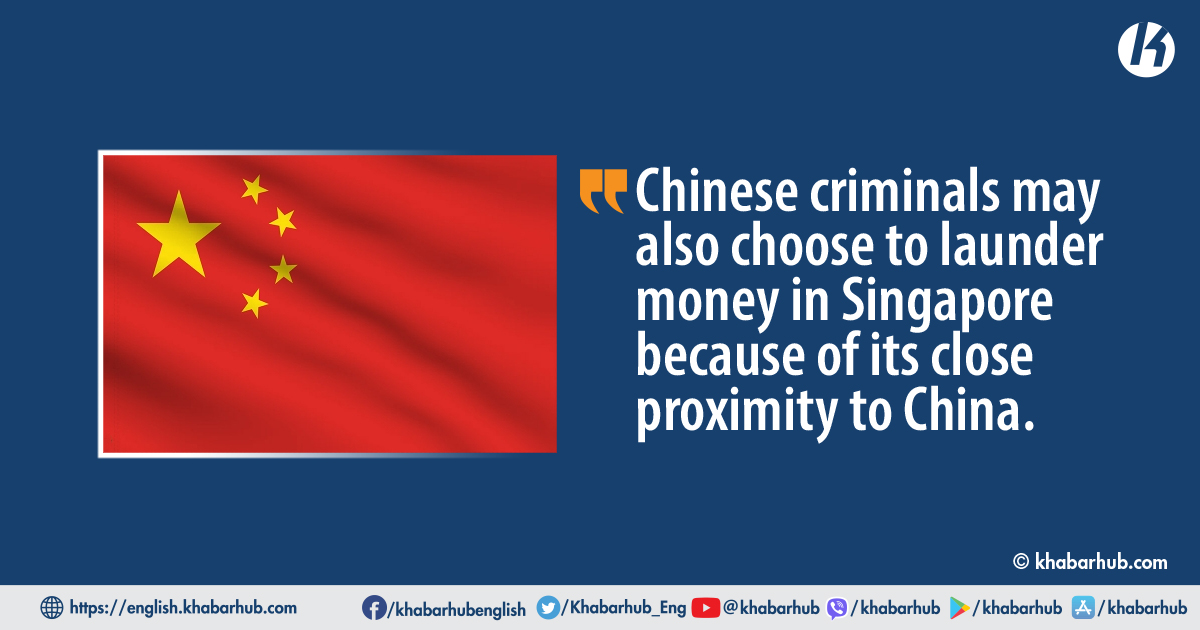0%

For China, it has come as a huge embarrassment after Singapore began a probe into the country’s biggest money laundering scandal involving mostly Chinese nationals.
Singapore police had arrested 10 foreign nationals in mid August and raided residences, seizing luxury items including Hermes handbags, Patek Philippe watches, aged Macallan whisky, and Bentley and Rolls-Royce cars.
The scandal involved more than 2.4 billion US dollars worth of assets that has rattled the Asian financial hub Consequently, Singapore banks have become wary of Chinese-born clients with other citizenships, after money laundering scam was busted in August.
These banks have revised their rules especially for Chinese-origin clients to avoid such a scam.
According to available reports, some lenders have been reviewing new account openings and transactions with clients of Chinese origin carrying investment-linked passports.
At least one international bank is closing some accounts of clients with citizenship from countries including Cambodia, Cyprus, Turkey and Vanuatu.
Instead, Zaobao maintained that Singapore has been working on the probe for “many, many months,” and any suggestion that the investigation is related to Chinese Foreign Minister Wang Yi’s August visit to Singapore “would be absurd” said K Shanmugam in an interview.
Singapore has stepped up efforts to tighten its anti-money laundering framework which came after August 15 island-wide raids that saw 10 wealthy people of Chinese origin arrested and charged.
The most ironic in this case was that all 10 are of mainland Chinese origin, from the eastern province of Fujian, but hold various foreign passports.
They are alleged to have ties with organised crime.Prosecutors have described it as “one of the most serious, if not the worst, money-laundering case in Singapore”.
Of the 10 suspects, three are current Chinese nationals: a 44-year-old man named Zhang Ruijin, a 43-year-old woman named Lin Baoying and a 31-year-old man named Wang Baosen.
The remaining seven hold different primary passports, but all have their origins in Fujian.
They were also found with Chinese passports. According to news reports, Singapore’s largest lender, DBS Bank, as well as the private banking arm of OCBC Bank, were among the creditors to investment companies linked to the 10 suspects in the case.
Prosecutors have so far seized S$1.8 billion (US$1.3 billion) in cash and assets from the 10 individuals, including at least 105 properties, 50 vehicles, S$123 million in cash, 250 luxury bags and watches, and 270 pieces of jewellery.
The properties involved are among the most exclusive in one of Asia’s priciest realestate markets: they include good-class bungalows and condominium units.
VangShuiming, for instance, allegedly financed 10 units at Canninghill Piers, a development under construction in the heart of Singapore’s Clarke Quay nightlife district.
According to the Singapore Police Force seized assets are the ill-gotten gains of organised crime committed overseas, including scams and online gambling, whose proceeds were brought into Singapore and filtered through the country’s financial institutions.
Meanwhile, Singapore’s Minister for Home Affairs K Shanmugam stated that that it did not start an investigation on a money laundering scandal on the request of Chinese government.
Singapore also has a relatively low tax rate and a business-friendly environment, which makes it an attractive destination for wealthy individuals and businesses from all over the world.
Instead, Zaobao maintained that Singapore has been working on the probe for “many, many months,” and any suggestion that the investigation is related to Chinese Foreign Minister Wang Yi’s August visit to Singapore “would be absurd” said K Shanmugam in an interview.
While on hand, Singapore’s ultra-clean reputation has taken a hit from the case, experts said that the case has badly hit the reputation of China whose nationals have been involved in the case.
News report in the Straits Times stated that among the 10 arrested included Fujian Wang Bingang who made millions offering illegal online gambling services to players in China.
Bingang formed his group in 2012 when he was only 23 years old. In two short years, he used to make huge profits through Hongli International gambling site from the Philippines and Cambodia.
Thirty four year old Wang was living in a plush bungalow in Rochalie Drive in Tanglin, which he rented with Wang Liyun, believed to be his wife, when Singapore police arrested 10 foreigners.
Meanwhile, Financial institutions are reviewing all new account registrations and transactions from players of Chinese origin.
Banks are assessing (case-by-case) and restricting transactions from users with citizenship from other nations.
Meanwhile, some are closing accounts of customers from Vanuatu, Dominica, Cyprus, Cambodia, and Turkey.
Singporean authorities have seized 1.8 billion US dollar in cash, properties, and digital assets since mid August.
Authorities alleged that these individuals acquired Singaporean citizenship to operate illicit gambling businesses.
As regard to Chinese interest in Singapore, there are a number of reasons why some Chinese criminals may choose to launder money in Singapore.
Singapore is a wealthy country with a strong banking and financial sector, which makes it easy to move money in and out of the country.
Singapore also has a relatively low tax rate and a business-friendly environment, which makes it an attractive destination for wealthy individuals and businesses from all over the world.
Chinese criminals may also choose to launder money in Singapore because of its close proximity to China.
This makes it easy for them to travel to and from Singapore, and to move money between the two countries.
The focus is on Singapore as to how it stops Chinese nationals from indulging in unfair practices of money laundering.